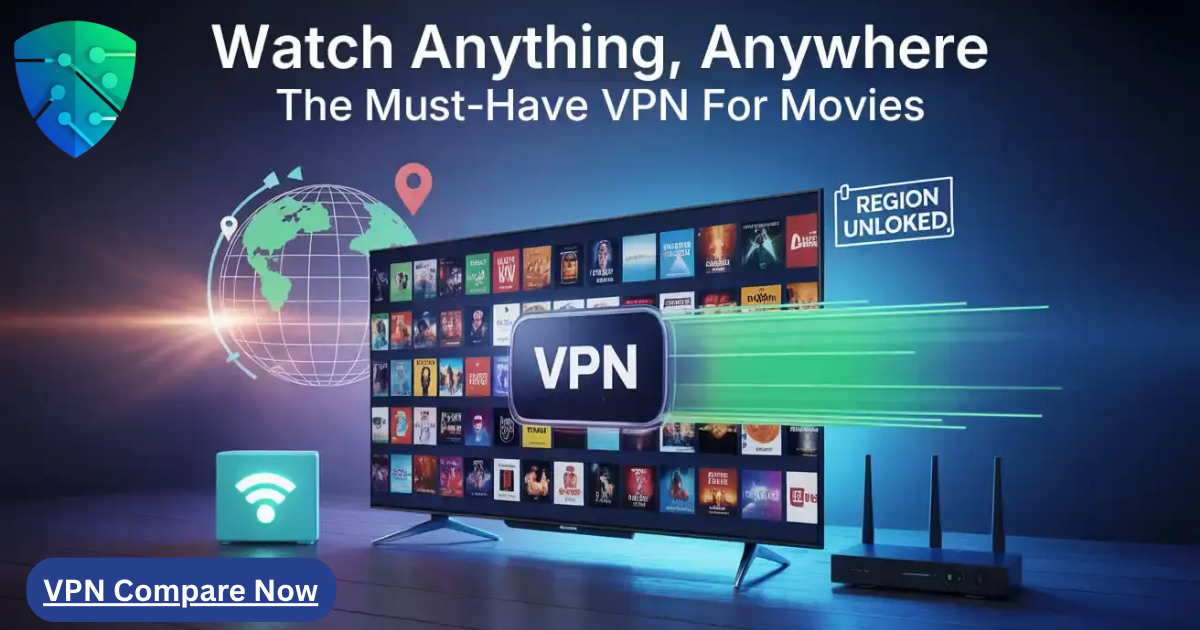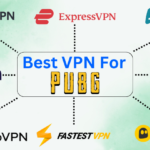Watch Anything, Anywhere: How to Stream Safely with a VPN
In today’s digital world, streaming has become a part of daily entertainment. Whether you love watching Netflix, Hulu, Disney+, or YouTube, there’s always something new to explore. But sometimes, you face one frustrating issue — geo-restrictions. Some movies, shows, or sports events are unavailable in your country. That’s where a VPN steps in to save the day.
A VPN (Virtual Private Network) helps you stream safely, privately, and without limits. It hides your real location and gives you access to content from anywhere in the world. In this guide, we’ll show you exactly how to stream safely with a VPN, how to set it up, and why it’s a must-have tool for every streamer.
What Is a VPN and How Does It Work?
A VPN creates a secure, encrypted tunnel between your device and the internet. When you connect to a VPN server, your online activity passes through that server instead of your Internet Service Provider (ISP). This hides your real IP address and shows the VPN’s IP instead.
In simple words:
-
Without VPN – Your ISP and websites can see your real location.
-
With VPN – Your identity and location stay private, and you can access global content.
VPNs are not just for security; they also help you unlock entertainment worldwide.
Why You Should Use a VPN for Streaming
Using a VPN isn’t only about bypassing restrictions — it’s about improving your overall streaming experience. Here’s how a VPN helps:
1. Unlock Geo-Restricted Content
Streaming platforms like Netflix, Hulu, or BBC iPlayer often limit their libraries based on country. A VPN lets you connect to a server in another region and access that region’s full catalog.
Example: Connect to a UK server to watch BBC iPlayer or a US server to explore Netflix USA.
2. Protect Your Privacy
Every time you stream, your ISP can track what you watch. A VPN encrypts your data so no one — not even your ISP — can monitor your activity.
This is especially useful if you use public Wi-Fi or share networks.
3. Prevent ISP Throttling
Have you ever noticed your internet speed dropping while streaming? ISPs often slow down (or “throttle”) your connection when they detect heavy usage.
A VPN hides your online behavior, preventing ISPs from limiting your bandwidth.
Result: Smoother, faster streaming with no buffering.
4. Stream Safely on Public Wi-Fi
If you watch Netflix or YouTube in cafes, airports, or hotels, your personal data may be exposed. VPNs protect your device from hackers who target unsecured Wi-Fi networks.
You can stream confidently knowing your connection is private and secure.
How to Use a VPN for Streaming — Step-by-Step Guide
Using a VPN for streaming is simpler than you might think. Follow these steps to get started:
Step 1: Choose a Reliable VPN Service
Pick a trustworthy VPN that supports streaming platforms. Check for:
-
Fast and stable servers
-
Wide range of global locations
-
No data limits or bandwidth restrictions
-
Compatibility with devices like Smart TVs, laptops, and mobiles
You can explore trusted reviews and comparisons on VPN Comparenow to find the best VPNs for streaming.
Step 2: Install the VPN App
After selecting your VPN provider:
-
Sign up and create an account.
-
Download the VPN app for your device (Windows, Android, iOS, or Smart TV).
-
Install and open the app.
Step 3: Connect to a Server
Launch the VPN and connect to a server where your desired content is available.
For example:
-
For US Netflix → Connect to a United States server.
-
For BBC iPlayer → Connect to a UK server.
Your virtual location changes instantly, unlocking new libraries and shows.
Step 4: Open Your Streaming App
Now, open Netflix, Hulu, YouTube, or any other platform. You’ll notice access to new shows or sports channels that weren’t available before.
Step 5: Enjoy Secure Streaming
Once connected, you can watch your favorite content safely, privately, and without lag. Make sure the VPN stays active while streaming.
Tips to Get the Best Streaming Performance with a VPN
Even though VPNs are simple to use, a few tweaks can make your streaming experience even better.
1. Choose the Right Server
Always connect to the nearest server for better speed. If you need to unblock specific content, select a location where that platform is available.
2. Use Wired Connections
Wi-Fi signals can fluctuate. If possible, connect your device via Ethernet cable for more stable speeds while streaming in HD or 4K.
3. Clear Cache and Cookies
Some streaming services remember your real location through cookies. Clear them before using your VPN to ensure better access.
4. Test Your Speed
Run a quick internet speed test to make sure your connection is strong enough for HD streaming. If it’s slow, switch to a different VPN server.
5. Keep VPN Updated
Always use the latest version of your VPN app. Updates improve security, fix bugs, and add faster servers for streaming.
Best Practices for Safe Streaming
To ensure you stay safe and enjoy a smooth streaming experience, keep these best practices in mind:
-
Avoid Free VPNs: Most free VPNs limit data and collect user information. Choose a trusted premium service reviewed on VPN Comparison.
-
Enable Kill Switch: It automatically disconnects your internet if the VPN drops, keeping your IP hidden.
-
Use Encrypted Protocols: Choose OpenVPN or WireGuard for maximum protection.
-
Check for DNS and IP Leaks: Your VPN should prevent leaks that reveal your real location.
Top Streaming Platforms You Can Unlock with a VPN
With a VPN, you can access entertainment libraries from around the world. Here are some popular platforms that work perfectly with VPNs:
-
Netflix (US, UK, Japan, and more regions)
-
Hulu (US-only access)
-
Amazon Prime Video (regional content)
-
BBC iPlayer (UK)
-
Disney+ (global access)
-
Hotstar, Peacock, ESPN+, and YouTube TV
A VPN gives you true global freedom to stream what you love — anytime, anywhere.
Why VPNs Are Legal and Safe for Streaming
Many users wonder if using a VPN for streaming is legal. The answer is yes — VPNs are legal in most countries.
However, streaming platforms might restrict certain content based on licensing rules. Using a VPN simply allows you to view that content as if you were in another country.
Remember, VPNs are primarily designed for privacy, security, and unrestricted access, not piracy.
Final Thoughts
Streaming should be fun, not frustrating. A VPN ensures that you can watch your favorite content from any part of the world without worrying about restrictions, buffering, or privacy risks. Whether you’re traveling abroad or just want to explore more shows, a VPN keeps your entertainment world open and secure.
Before you choose a service, compare top-rated VPNs on VPN Comparenow to find one that offers speed, reliability, and privacy.
And if you want to learn more about online safety and tools that make streaming easier, visit our Home Page for detailed guides and reviews.
With the right VPN, you can finally watch anything, anywhere — safely and freely.




